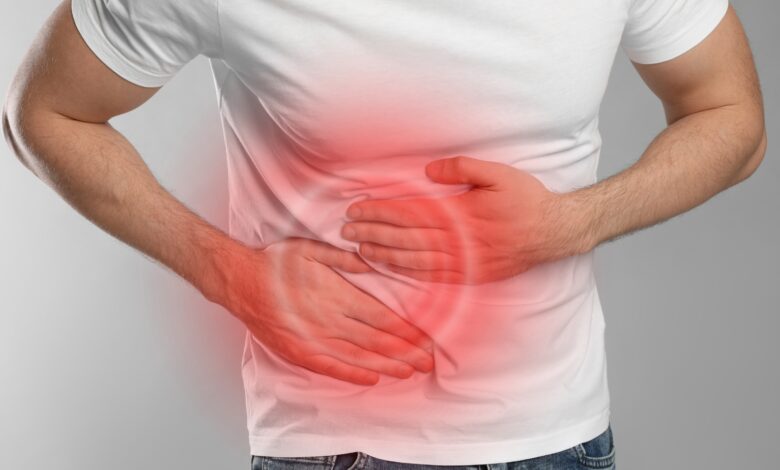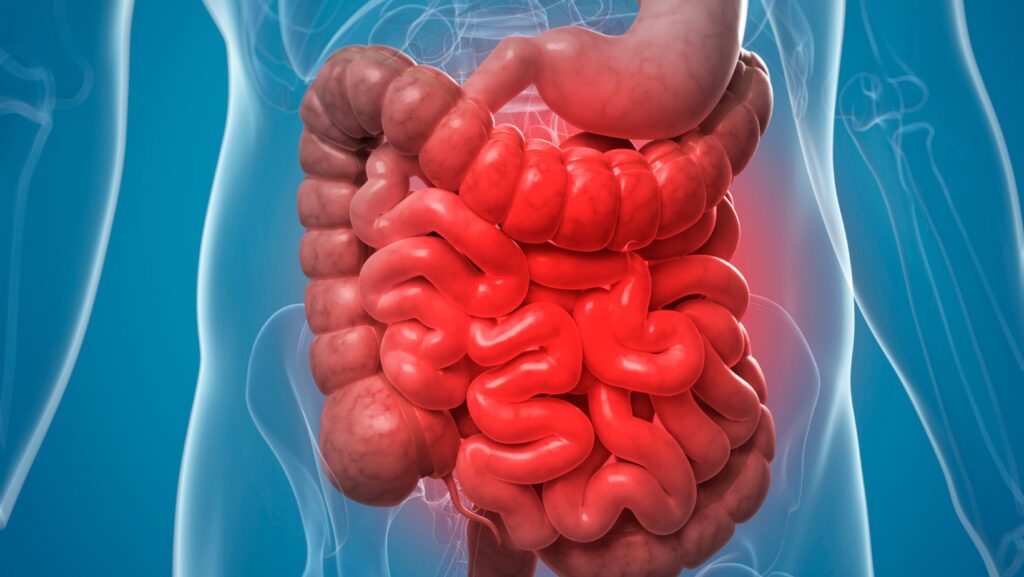Chronic Appendicitis Symptoms Explained: Insights and Tips from Dr. Nivedita Pandey

Chronic appendicitis can be a perplexing and often misunderstood condition. Unlike its acute counterpart, chronic appendicitis manifests subtly, with symptoms that may ebb and flow over time. This blog delves into appendicitis symptoms explained through the expert lens of Dr. Nivedita Pandey, providing a comprehensive overview of the condition, its symptoms, and essential tips for management.
Understanding Chronic Appendicitis
What is Chronic Appendicitis?
Chronic appendicitis is a long-term inflammation of the appendix, which is a small, finger-like pouch attached to the large intestine. Unlike acute appendicitis, where symptoms appear suddenly and severely, chronic appendicitis develops slowly, causing intermittent or continuous abdominal pain. This lingering inflammation can persist for weeks, months, or even years, often making diagnosis challenging.

Key Differences Between Acute and Chronic Appendicitis
- Onset: Acute appendicitis comes on quickly with intense symptoms, while chronic appendicitis has a gradual onset with milder, recurrent symptoms.
- Pain: Acute appendicitis causes sharp, localized pain, typically in the lower right abdomen. Chronic appendicitis, on the other hand, results in a dull, aching pain that can be hard to pinpoint.
- Duration: Acute appendicitis requires immediate medical intervention, often surgery. Chronic appendicitis may lead to prolonged discomfort that can be managed with medical treatment or lifestyle adjustments.
Appendicitis Symptoms Explained
Recognizing the symptoms of chronic appendicitis is crucial for timely diagnosis and treatment. Here are the primary indicators:
- Persistent Lower Right Abdominal Pain
The hallmark symptom of chronic appendicitis is a persistent, dull pain in the lower right abdomen. This pain can vary in intensity and may be mistaken for other gastrointestinal issues. Unlike the sharp, severe pain of acute appendicitis, chronic pain is more of a lingering discomfort that can be hard to ignore.
- Digestive Disturbances
Chronic appendicitis often presents with various digestive issues. Symptoms like nausea, vomiting, and a loss of appetite are common and may worsen after eating. These digestive disturbances can contribute to general discomfort and fatigue.
- Low-Grade Fever
A low-grade fever might accompany chronic appendicitis, though it is usually not as pronounced as the fever seen in acute cases. This intermittent fever can align with the fluctuating nature of inflammation in the appendix.
- Bloating and Gas
Many individuals with chronic appendicitis experience bloating and excessive gas. These symptoms can exacerbate abdominal pain and discomfort, further complicating the condition.
- Changes in Bowel Habits
Changes in bowel movements, such as diarrhea or constipation, can occur with chronic appendicitis. These changes are often irregular and add to the diagnostic challenge, as they can be attributed to various gastrointestinal issues.
- Fatigue and Malaise
Chronic inflammation often leads to fatigue and a general sense of malaise. The body’s prolonged response to ongoing inflammation can drain energy levels, impacting overall well-being and quality of life.
- Rebound Tenderness
Rebound tenderness, where pain intensifies after pressing on the affected area and then releasing, is another symptom. This symptom is typically identified during a physical examination by a healthcare provider.
For a deeper exploration of chronic appendicitis symptoms, check out this comprehensive guide.
Diagnosing Chronic Appendicitis
Diagnosing chronic appendicitis can be challenging due to its subtle and variable symptoms. Here’s how healthcare providers typically approach the diagnosis:
Detailed Patient History
A comprehensive patient history is essential. Healthcare providers should inquire about the duration, frequency, and intensity of symptoms, as well as any factors that seem to trigger or alleviate the pain.
Physical Examination
A thorough physical examination can reveal signs of tenderness, particularly in the lower right abdomen. The presence of rebound tenderness can also support the diagnosis of chronic appendicitis.
Blood Tests
Blood tests can help identify markers of inflammation, such as elevated white blood cell counts or C-reactive protein levels. While these markers are not specific to chronic appendicitis, they can indicate ongoing inflammation.
Imaging Studies
Imaging studies, such as an ultrasound or CT scan, provide a clearer view of the appendix and surrounding tissues. These tests can help confirm inflammation or identify other potential causes of symptoms.
Diagnostic Laparoscopy
In some cases, diagnostic laparoscopy (a minimally invasive surgical procedure) may be necessary to visualize the appendix and confirm chronic appendicitis directly.
Insights from Dr. Nivedita Pandey
Dr. Nivedita Pandey, an expert in gastrointestinal health, offers valuable insights into the symptoms explained. Dr. Pandey emphasizes the importance of considering chronic appendicitis when patients present with persistent abdominal pain and gastrointestinal symptoms.
Challenges in Diagnosis
Dr. Pandey highlights that chronic appendicitis is often overlooked due to its subtle and variable symptoms. Patients may undergo multiple evaluations and treatments for other conditions before chronic appendicitis is considered.
Importance of Thorough Evaluation
A thorough evaluation, including a detailed patient history and physical examination, is crucial for identifying chronic appendicitis. Dr. Pandey advises healthcare providers to be vigilant and consider chronic appendicitis as a differential diagnosis for unexplained abdominal pain.
Role of Imaging and Laparoscopy
Imaging studies and diagnostic laparoscopy play a significant role in confirming the diagnosis. Dr. Pandey notes that while imaging can provide valuable information, direct visualization of the appendix through laparoscopy may be necessary in some cases.
Management Strategies
Once diagnosed, chronic appendicitis may be managed with antibiotics to reduce inflammation and alleviate symptoms. In cases where symptoms persist, or complications arise, surgical removal of the appendix (appendectomy) may be required.
Patient Education
Educating patients about chronic appendicitis and its potential symptoms is essential. Dr. Pandey emphasizes the need for patients to understand the condition and recognize when to seek medical attention for worsening symptoms.
Effective Management and Home Remedies
In addition to medical treatment, certain lifestyle changes and home remedies can help manage chronic appendicitis symptoms and improve overall quality of life.
Dietary Adjustments
A balanced diet rich in fiber can aid digestion and reduce inflammation. Incorporate whole grains, fruits, vegetables, and lean proteins into your diet. Avoiding processed foods and high-fat meals can help alleviate symptoms.
Hydration
Staying well-hydrated supports digestion and overall health. Aim to drink at least eight glasses of water daily and limit sugary or caffeinated beverages.
Gentle Exercise
Regular, gentle exercise such as walking or yoga can improve digestion and reduce stress. Avoid high-impact activities that could worsen abdominal pain.
Heat Therapy
Applying a warm compress or heating pad to the lower abdomen can provide relief from pain. Heat helps relax muscles and reduce inflammation.
Stress Management
Chronic stress can exacerbate symptoms. Practice relaxation techniques such as deep breathing, meditation, or mindfulness to reduce stress levels and improve overall well-being.
Herbal Remedies
Certain herbs, such as ginger and turmeric, have anti-inflammatory properties that can help manage symptoms. Always consult with a healthcare provider before incorporating herbal remedies into your routine.
Monitor Symptoms
Keep a symptom diary to track the frequency, intensity, and triggers of your symptoms. This information can be valuable for your healthcare provider in managing the condition effectively.
When to Seek Medical Attention
It is crucial to seek medical attention if you experience persistent or worsening symptoms associated with chronic appendicitis. Immediate medical care is necessary if you experience:
- Severe Abdominal Pain: Intense pain that does not improve with home remedies or over-the-counter medications.
- High Fever: A high fever may indicate a serious infection requiring prompt medical evaluation.
- Persistent Nausea or Vomiting: Ongoing nausea or vomiting that affects your ability to eat or drink.
- Significant Changes in Bowel Movements: Notable changes in bowel habits or the presence of blood in the stool should be discussed with a healthcare provider.
Conclusion
Understanding chronic appendicitis involves recognizing its persistent symptoms, differentiating it from other gastrointestinal conditions, and seeking appropriate medical care. With insights from Dr. Nivedita Pandey, patients and healthcare providers can better identify and manage this condition, leading to improved outcomes and quality of life.
For more detailed information on chronic appendicitis symptoms and management, visit this comprehensive guide.



